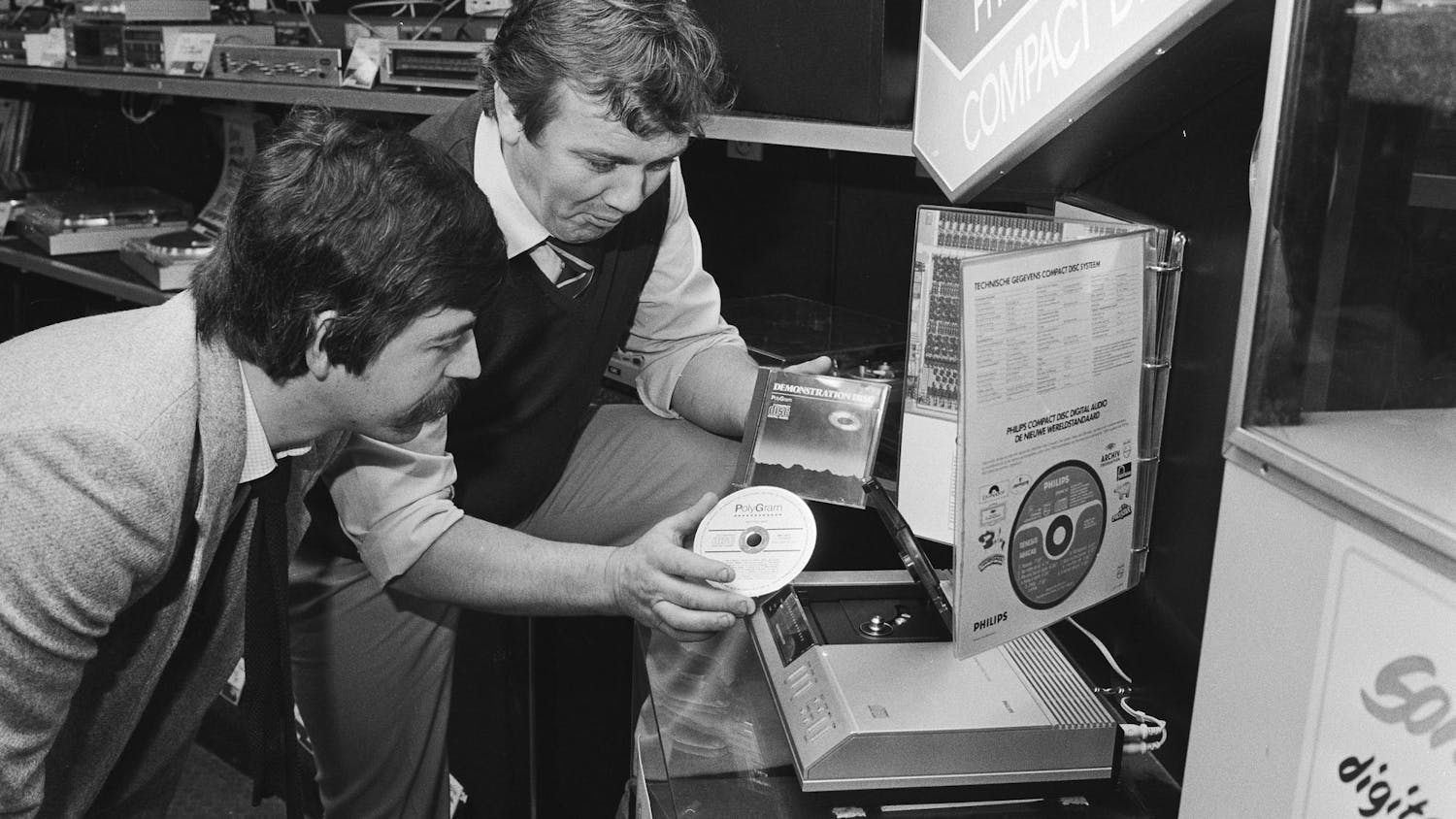At the 2025 Academy Awards, Sean Baker expressed concern for cinema in his Best Director speech: “We are all here tonight because we love movies. Where did we fall in love with movies? At the movie theater.” He pleaded to filmmakers, distributors and parents to keep theaters alive. Are in-person screenings going to become a thing of the past?
People always express concern when new media forms gain traction, like with the rise of radio or VCR, so it seems like an exaggeration to say that our streaming era would be any different. It’s difficult not to be concerned, though, when it's a topic at the largest movie event of the year, and when you reflect on whether people value the movies as much as before… it doesn’t seem like it. I found myself thinking about how this might affect my current closest theater: Cornell Cinema.
On Monday, I sat down with Cornell Cinema Director, Molly Ryan, in the cinema’s conference room to talk about the theater’s history and whether Ryan was worried for its future. The windows brimmed with sunlight, and throughout our conversation, Ryan beamed with a smile. She displayed not only her hope for Cornell Cinema but also for movies generally. Ryan came to Cornell in Fall 2022, so considering she hasn’t been here for long, the abundance of anecdotes she could share in her two-plus years shows how much the theater has to offer.
Cornell Cinema screens mainstream, new hits like Anora and classic films like Eraserhead alike. They set up film series and bring in guest speakers, including filmmakers, activists and scholars, to continue the dialogue after screenings. This week, they continued an existing collaboration with the ASL/Deaf Studies program with a showing of Deaf President Now! and a post-screening discussion with Senior Linguistics Lecturer, Brenda Schertz. Ryan emphasized how they are “creating opportunities for it to be more than just sitting and watching a film then leaving.” “What makes Cornell Cinema special is that it is embedded within the dynamic community that is Cornell University… we not only get to watch films together but bring diverse communities together for conversations about what these films might inspire us to do in the world,” Ryan proudly shared.
Even more, Cornell Cinema shows short-form content, like the annual CatVideoFest, and experimental films, like a unique Cornell version of Eno, a film that changes each time it's shown. Surprisingly to me, the CatVideoFest was their most popular event last semester. I imagine its appeal stems from its opportunity for audience members to laugh together at something they wouldn’t otherwise see.
With Cornell Cinema’s range of options, students, professors and Ithacanas can almost always find something appealing to them. Cornell Cinema is more than “movies” — it's a cultural experience that can’t be recreated at home. It’s a leading example of how theaters can adapt to contemporary audiences while keeping their identity intact.
I asked Ryan whether she’s hopeful for the future of movie theaters. She responded with a resounding “Absolutely.”
“Cinemas have continuously persisted and adapted. What I think we're seeing now is audiences craving a communal experience of being together in the cinema and having greater appreciation for the opportunity to see a work of art as it was designed to be experienced,” Ryan explained. “Even though we're in this very ultra-connected world, we still need to find ways to understand different people's experiences… It’s very easy to be distracted in the world today and cinema has created a place where you can turn off the noise of the world,” Ryan expressed.
In theaters, people sit side-by-side — all from different backgrounds and perspectives — to watch the same film. If you’re watching a movie at home, you’re likely on your phone or pausing, repeatedly, for breaks.
Cornell Cinema’s vintage look aids in bringing us back to the old feeling of movie-going normalcy — a staggering difference from the now routine experience of streaming the latest Netflix hit. If you’ve never seen Cornell Cinema, I urge you to visit. Upon entering, you’ll pass a concessions stand complete with a quaint popcorn machine, and enter the theater to see red velvet curtains, folding seats and fresco Shakespearean and Greek theater murals spanning its walls. Ryan shared, “There's a gasp people have when they turn into the theater. There's a sense of history and place and that you're going to have an exceptional experience coming here.”
The largest challenge seems to be making sure people know about Cornell Cinema. Nestled in the basement of Willard Straight, it isn’t a visually blaring place. Many of my friends have never seen a show there, and likely never will. However, for the ones that have, I’ve heard raving reviews. I brought a friend to an advanced screening of Sundance award-winning film, The Nanny, in 2022, accompanied by discussions with the writer and director, Nikyatu Jusu, and former Sundance CEO, Keri Putnam. My friend and I talked at length afterward about how amazing it was, and it still gets brought up years later. She didn’t have any significant interest in film, but it impacted her. That’s the type of influence this theater’s programming has.
“If you love music, sound, architecture, writing, world-building — those are all ways to get into film and be excited about it. It's a very broad, engaging and accessible medium that has great power and potential to help us feel connected to one another,” Ryan shared. “I’m inspired to keep finding ways to do that here at Cornell Cinema.”
More movie theaters could follow Cornell Cinema’s suit in leveraging their roots. The power of Cornell’s theater comes from its historic design, unique programming and constant visiting guests. Each audience member is reminded of how physically being in a cinema, along with people who share some interest in what's on screen, delivers an unparalleled energy. There may be talk about movie theaters’ demise, but rare places like Cornell Cinema indicate that such a future is nearly impossible.
Gillian Lee is a senior in the College of Arts & Sciences. She can be reached at gl386@cornell.edu.











